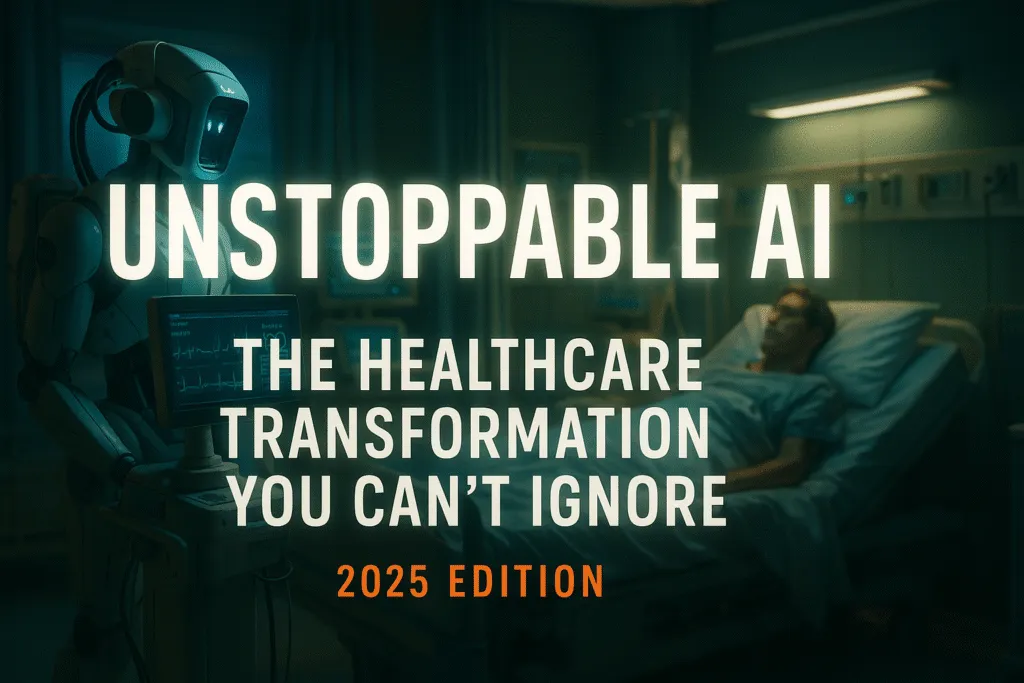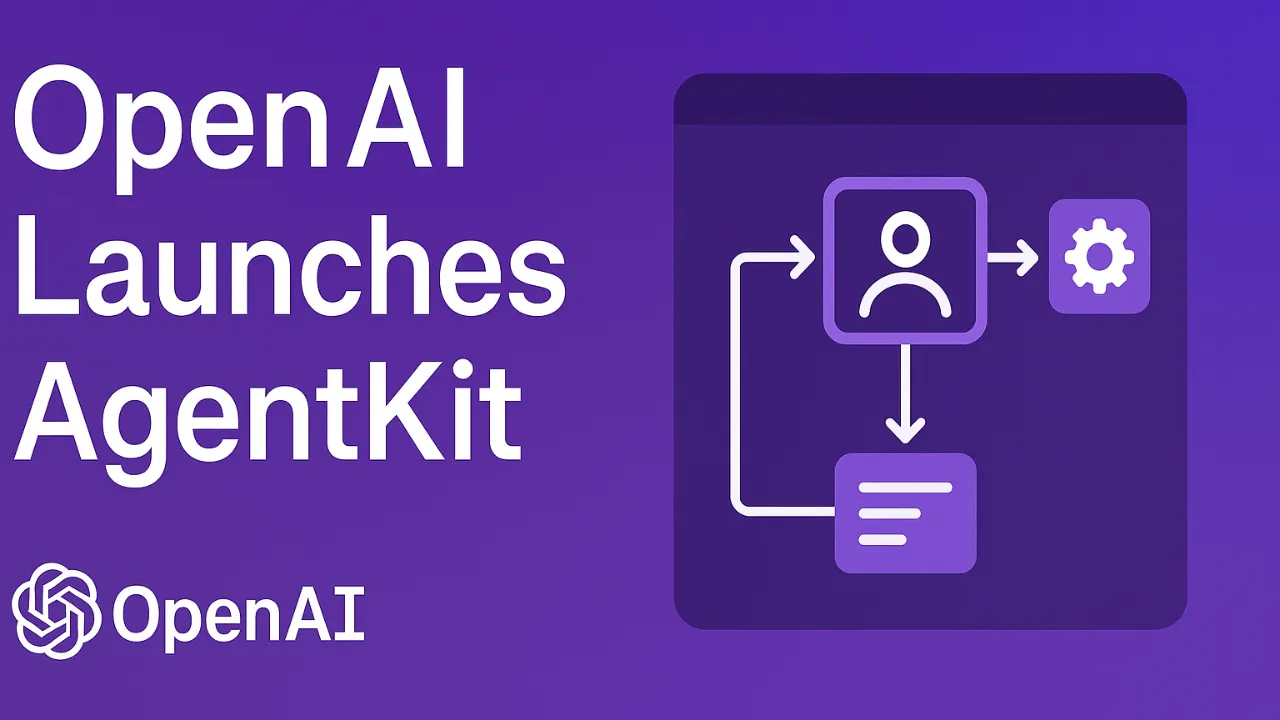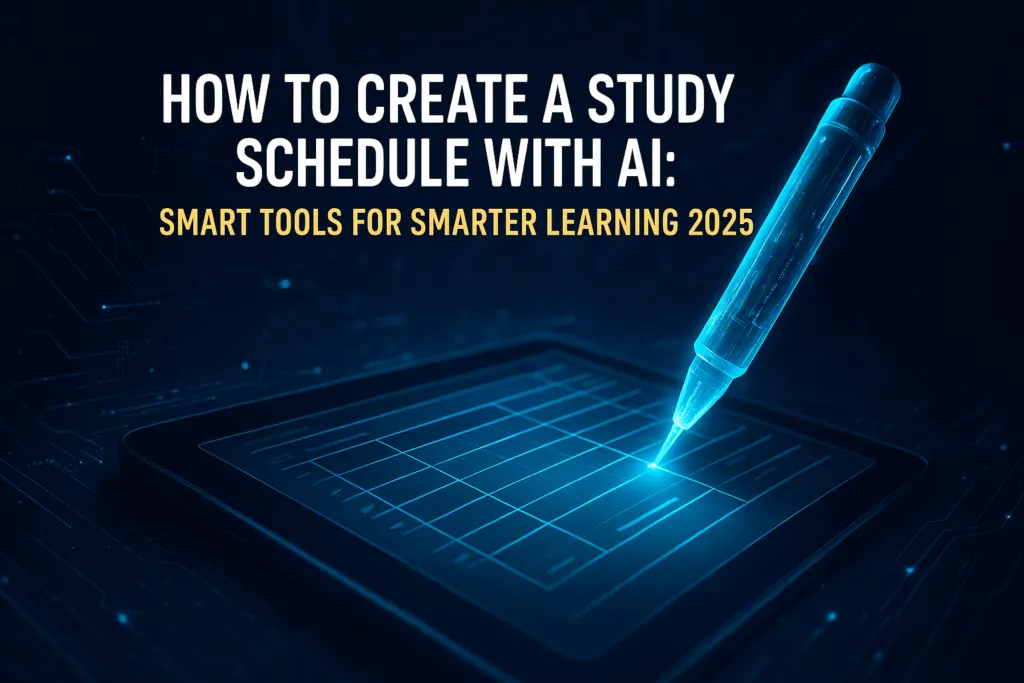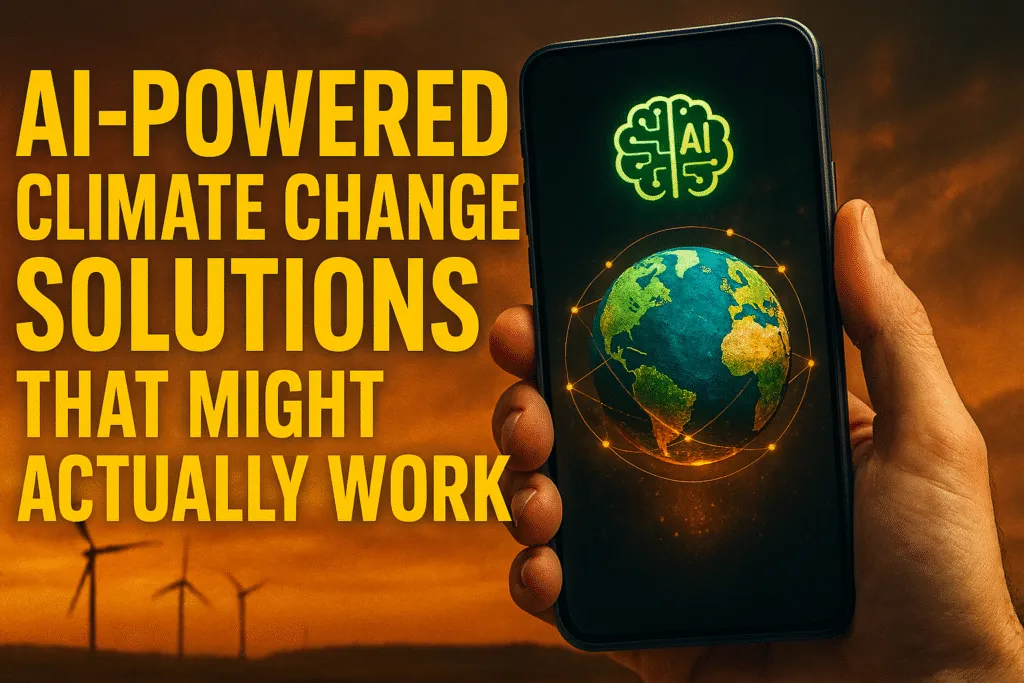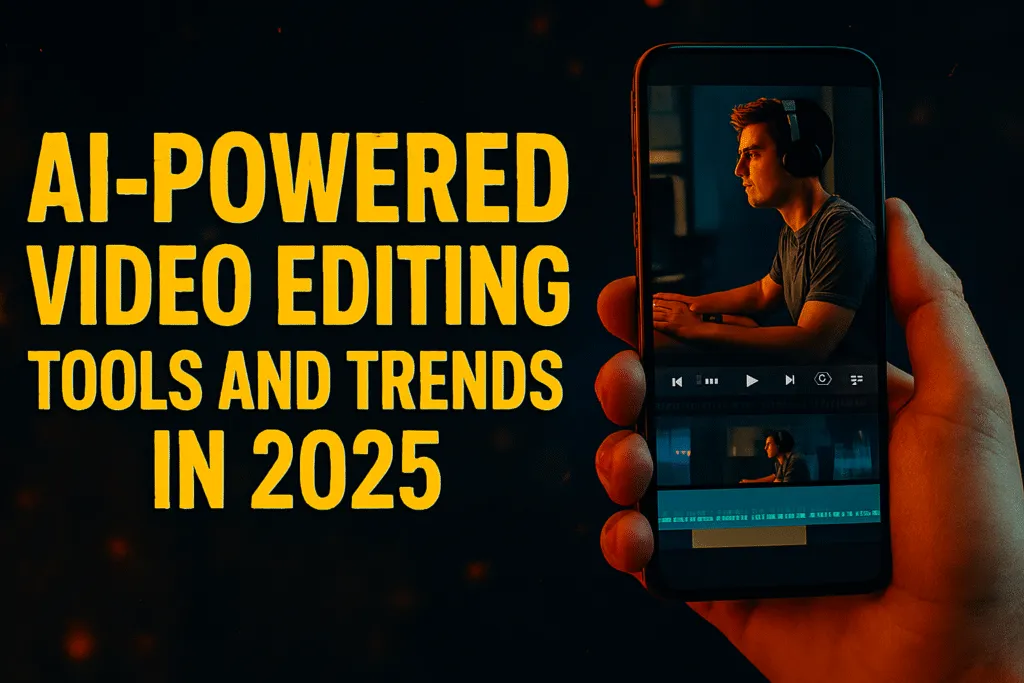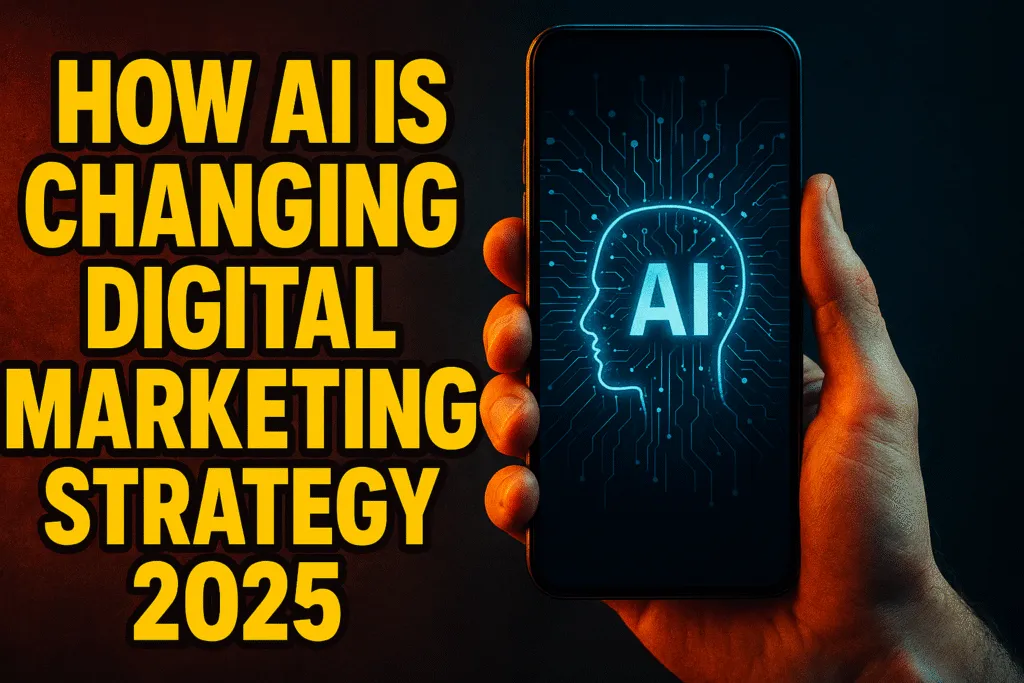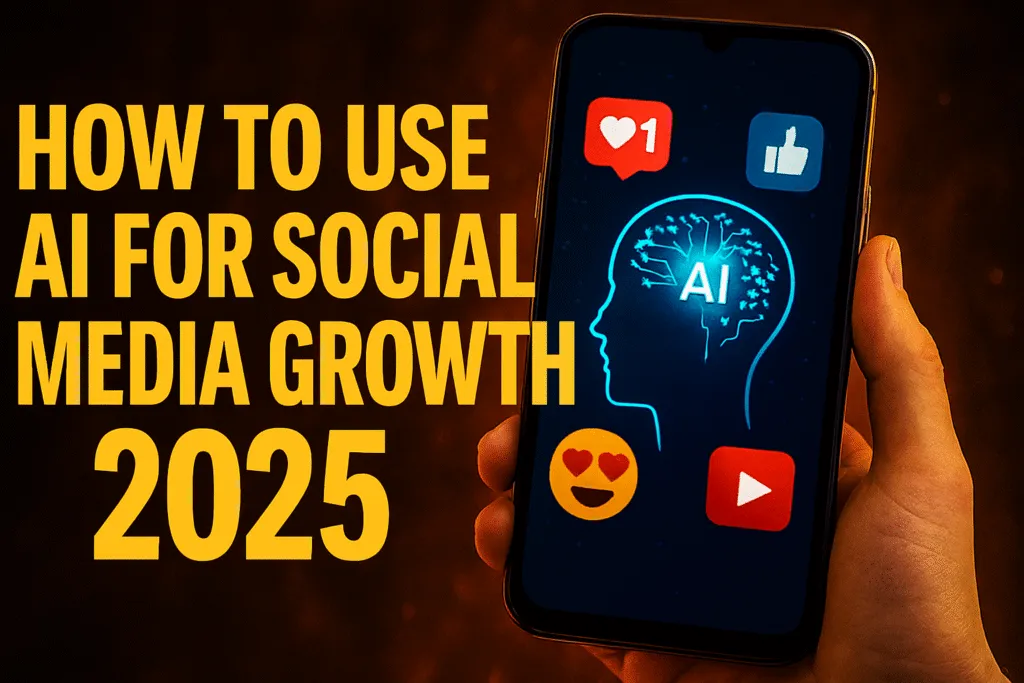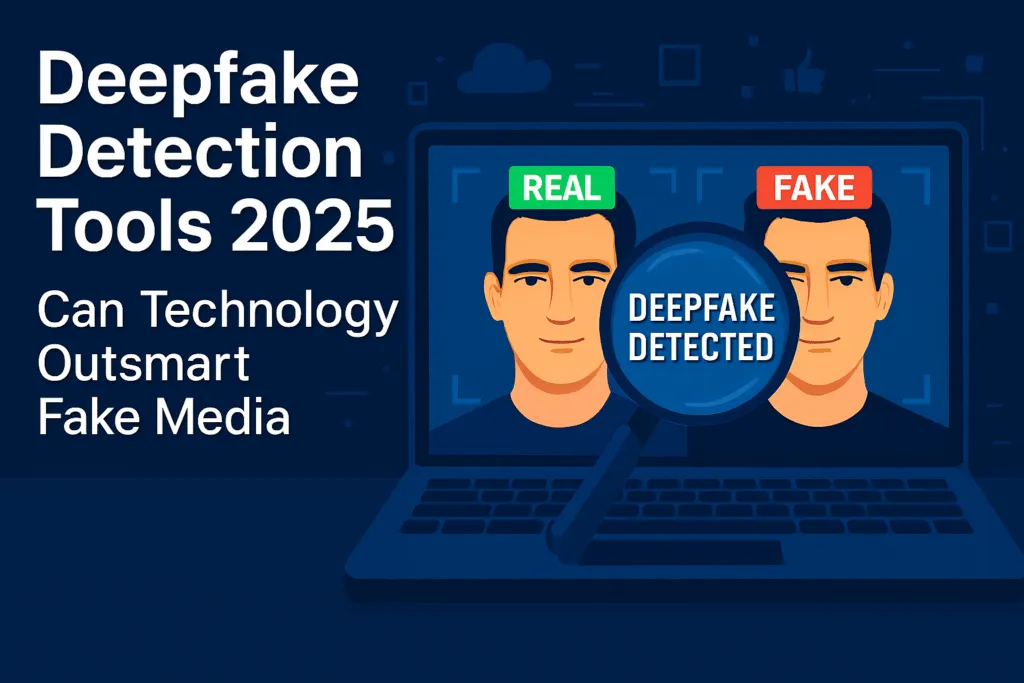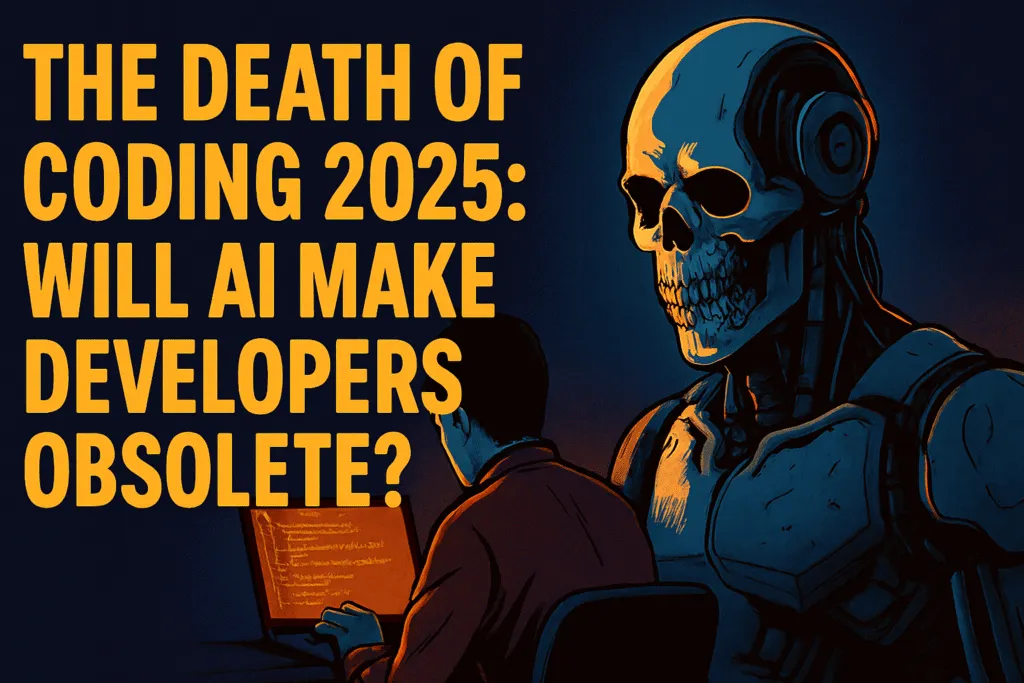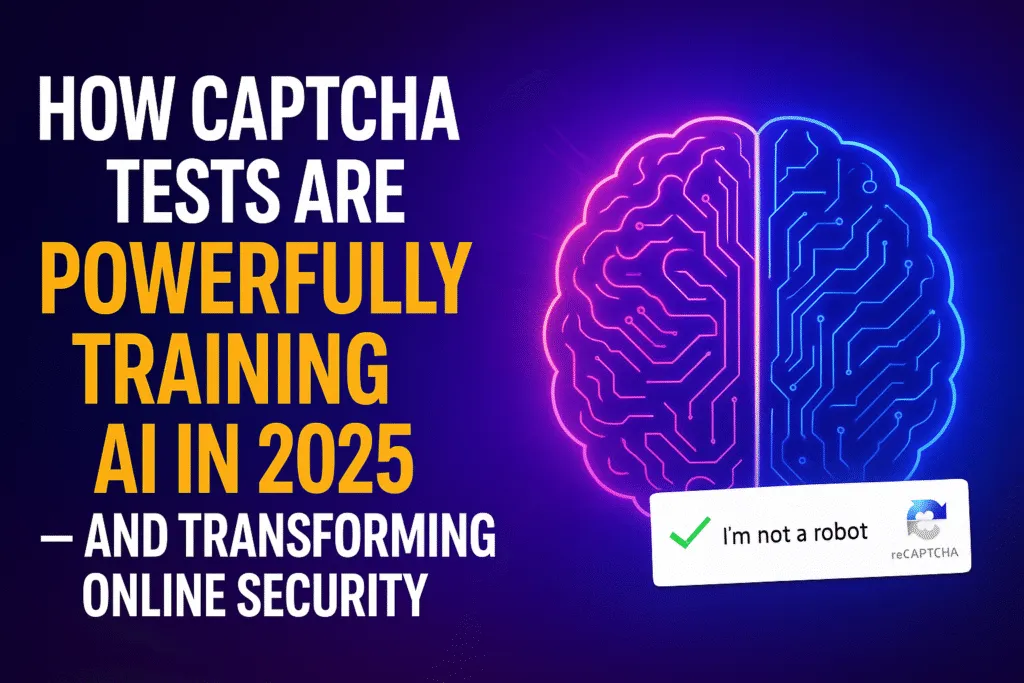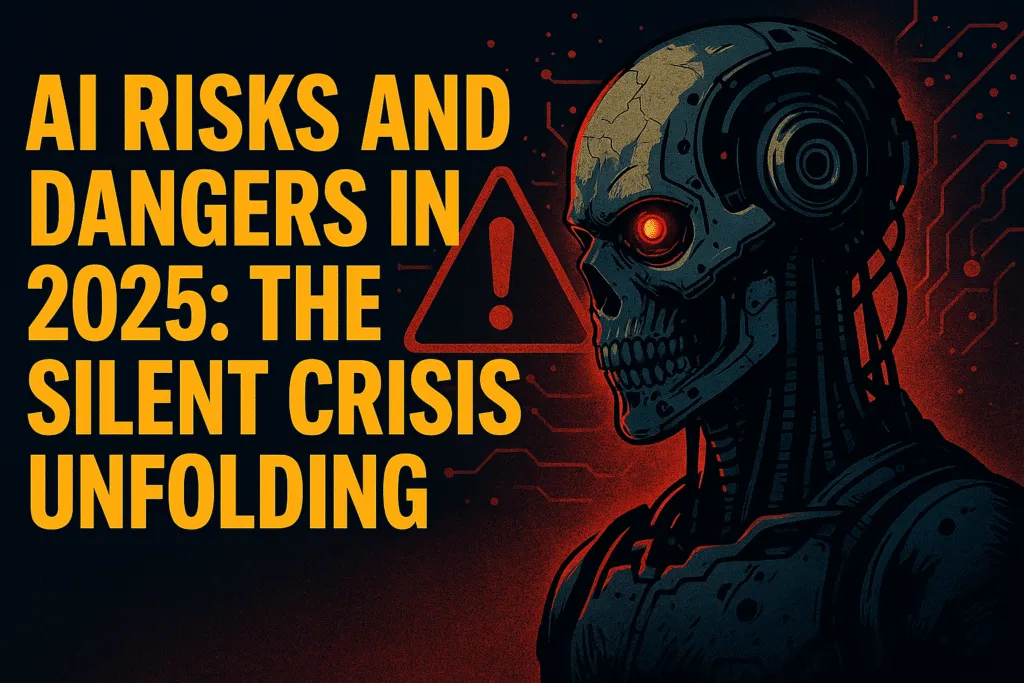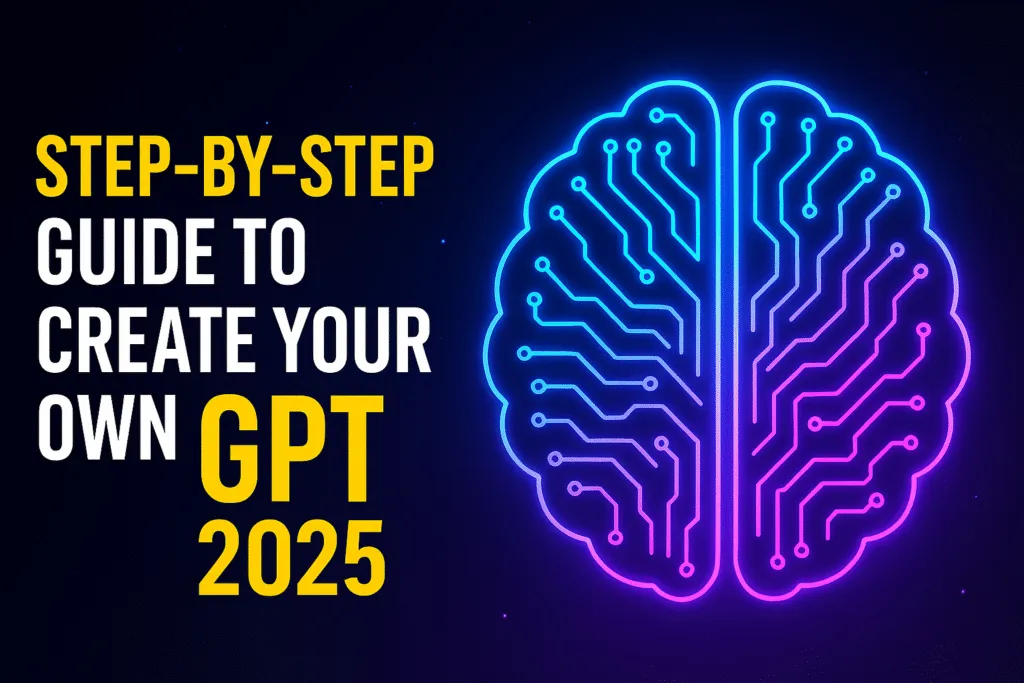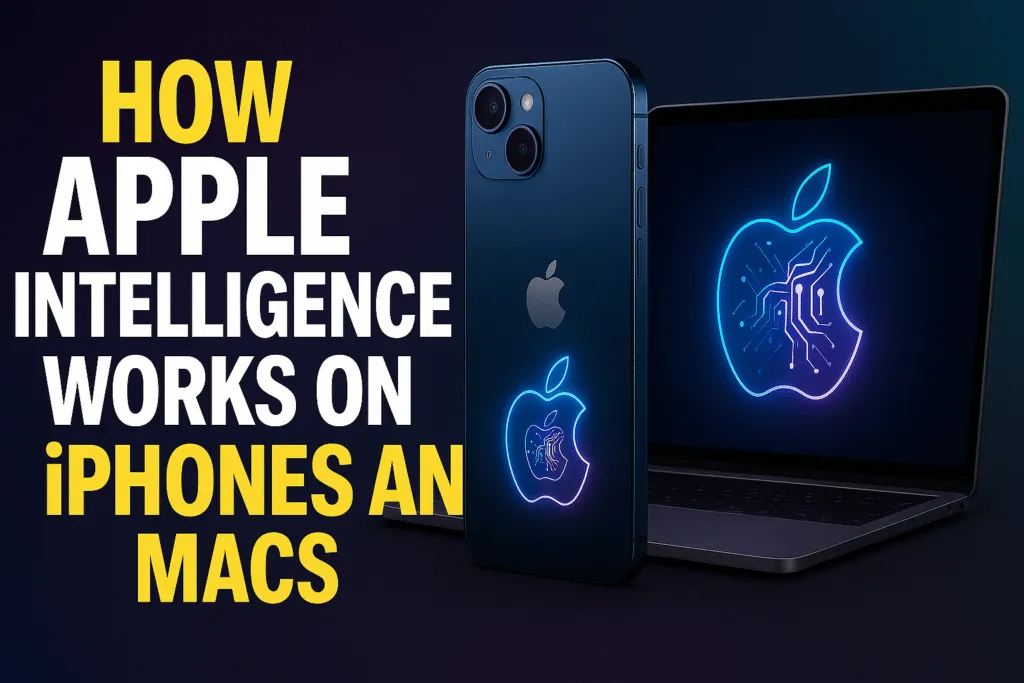Introduction
In recent years, technology has transformed nearly every industry—but none more profoundly than healthcare. As a tech blogger deeply invested in exploring how innovation shapes our world, I find the rapid advancements in healthcare particularly fascinating. From AI-driven diagnostics to intelligent health monitoring, the integration of artificial intelligence into healthcare systems is not just a trend—it’s a revolution in motion.
The year 2025 marks a significant shift in how we approach medical treatment, patient care, and even disease prevention. With data-driven algorithms, real-time decision-making, and machine learning models becoming more accurate and accessible, healthcare is moving toward a more personalized, proactive, and efficient model. Doctors are now equipped with smarter tools, patients have access to intelligent assistants, and medical research is accelerating like never before.
What’s exciting is that this transformation is no longer limited to research labs or high-end hospitals. AI in healthcare is now reaching smaller clinics, rural areas, and even individual homes—bridging the gap between technology and human well-being. It’s enhancing accuracy, reducing costs, and improving outcomes across the board.
In this blog, we’ll explore how AI is revolutionizing healthcare in 2025—from diagnosis to treatment, from robotics to virtual consultations. Whether you’re a medical professional, tech enthusiast, or simply someone curious about the future, understanding this shift is essential. The changes are not just technical—they’re deeply human, promising better lives and longer futures.
The Role of AI in Modern Healthcare
Artificial Intelligence is no longer a futuristic concept—it’s actively shaping the present, especially in the field of healthcare. In 2025, AI has become an essential part of how medical professionals diagnose, treat, and manage diseases. By analyzing vast amounts of patient data quickly and accurately, AI systems support doctors in making faster, more informed decisions.
One of the most significant roles AI plays in modern healthcare is data interpretation. With the rise of electronic health records, wearable devices, and connected health systems, there is more patient data available than ever before. AI algorithms process this data to identify patterns, predict health risks, and suggest timely interventions that can prevent serious illnesses before they develop.
AI is also improving the efficiency of healthcare delivery. From automating administrative tasks to managing hospital workflows, it reduces the burden on medical staff, allowing them to focus more on patient care. In emergency rooms, AI tools help prioritize cases based on severity, ensuring critical patients receive immediate attention.
Moreover, AI-driven virtual assistants and chatbots have become common in primary care. They offer initial guidance, schedule appointments, and even conduct basic health assessments. This not only enhances patient engagement but also eases the pressure on healthcare systems by handling routine queries.
In short, AI is not replacing healthcare professionals—it’s empowering them. By enhancing accuracy, optimizing workflows, and enabling early intervention, AI is transforming healthcare into a smarter, more responsive ecosystem. As we continue to adopt these technologies, the role of AI will only deepen, making healthcare more accessible and efficient for everyone.
AI-Powered Diagnostics
AI-powered diagnostics are redefining how diseases are detected and managed in today’s healthcare landscape. In 2025, these intelligent systems are not just assisting doctors—they’re becoming critical partners in clinical decision-making. By analyzing complex medical data such as imaging scans, lab results, and patient histories, AI helps deliver faster and more accurate diagnoses than ever before.
One of the most transformative areas is medical imaging. AI models trained on thousands of X-rays, MRIs, and CT scans can now detect conditions like tumors, fractures, and neurological issues with remarkable precision. In some cases, these systems can identify anomalies that even trained radiologists might miss, ensuring early detection and timely treatment.
Beyond imaging, AI diagnostics are making waves in fields like pathology and genomics. Algorithms can analyze tissue samples or genetic data to identify cancer markers or hereditary diseases. These insights enable highly personalized treatment plans, improving patient outcomes significantly.
Another key advantage is speed. Traditional diagnostic procedures can take days or even weeks, but AI tools can process data and deliver results in minutes. This is especially crucial in critical care, where time is a deciding factor between life and death.
AI-powered diagnostics also support remote and underserved areas, where access to specialist doctors is limited. With AI tools integrated into mobile devices or cloud platforms, healthcare workers can receive expert-level diagnostic support in real time, improving the quality of care in rural and remote regions.
As AI continues to evolve, its role in diagnostics will only grow stronger. By combining vast datasets with deep learning, it’s helping create a healthcare system that is more proactive, precise, and patient-centered. This isn’t just innovation—it’s a necessary evolution in modern healthcare.
Personalized Treatment Plans
In 2025, healthcare is no longer about one-size-fits-all solutions. Thanks to artificial intelligence, personalized treatment plans have become a cornerstone of modern medicine. AI is enabling doctors to move beyond standard protocols and instead craft care strategies tailored to each individual’s unique genetic makeup, lifestyle, and medical history.
By analyzing large datasets that include everything from lab results and prescriptions to wearable device data, AI systems can identify which treatments are likely to work best for a specific patient. For instance, in cancer care, AI can study a patient’s genomic profile to recommend targeted therapies that minimize side effects and maximize effectiveness. This kind of precision medicine leads to better outcomes and higher chances of recovery.
Moreover, AI helps doctors adjust treatment plans in real-time. If a patient isn’t responding well to a medication, AI tools can flag the issue quickly and suggest alternatives based on similar cases. This reduces trial-and-error in treatments and ensures timely adjustments that improve patient safety and comfort.
Chronic disease management has also seen huge benefits. Patients with conditions like diabetes, heart disease, or asthma can now receive AI-generated care plans that adapt to their day-to-day health metrics. These plans often include reminders, lifestyle tips, and early warnings—all powered by real-time data.
Personalized treatment isn’t just about better health—it’s about patient empowerment. With AI, individuals are more involved in their care journey, gaining insights into what works best for them. As technology advances, this level of customization will continue to grow, making healthcare not only smarter but more human-centered than ever before.
AI in Medical Imaging
AI is transforming medical imaging into a faster, more accurate, and highly efficient process—reshaping how healthcare professionals detect and monitor diseases. In 2025, AI-driven tools are routinely used to analyze imaging data like X-rays, CT scans, MRIs, and ultrasounds with a level of precision that often rivals or exceeds human interpretation.
Traditionally, radiologists would manually examine hundreds of images daily, a time-consuming process prone to human error, especially under pressure. Now, AI algorithms can scan and interpret these images in seconds, highlighting abnormalities such as tumors, internal bleeding, or fractures. This not only speeds up diagnosis but also ensures that no subtle detail is overlooked.
In areas like oncology, AI is playing a vital role in early cancer detection. For example, AI models trained on thousands of mammograms can now spot early-stage breast cancer that may not be visible to the human eye. Similarly, in neurology, AI helps detect conditions like Alzheimer’s or stroke patterns earlier than ever, allowing for timely intervention and better outcomes.
One of the most impactful benefits is the ability to standardize diagnostic quality across regions. In remote or resource-limited areas, where expert radiologists may not be available, AI provides consistent and reliable analysis, bridging the gap in healthcare access.
Beyond diagnosis, AI also assists in post-treatment monitoring by comparing image data over time to track disease progression or recovery. This continuous evaluation helps doctors make informed decisions about ongoing care.
As AI in medical imaging continues to evolve, it’s not replacing radiologists—it’s enhancing their capabilities. By automating routine analysis and detecting subtle changes, AI allows healthcare professionals to focus on more complex, patient-centered care. This blend of technology and expertise is setting a new standard for medical imaging in the modern healthcare system.
Virtual Health Assistants & Chatbots
Virtual health assistants and AI-powered chatbots are reshaping the way patients interact with the healthcare system. In 2025, these intelligent tools have become an everyday part of patient care—offering support, guidance, and even basic medical advice around the clock. For many, they are the first point of contact in their healthcare journey.
These virtual assistants are designed to handle a wide range of tasks, from booking appointments and reminding patients to take their medications to answering questions about symptoms and treatment plans. Using natural language processing and machine learning, they can understand user queries, respond in a conversational tone, and continuously learn from interactions to improve their accuracy.
One of the biggest advantages of virtual health assistants is accessibility. People no longer need to wait for a doctor’s appointment to get answers to common health concerns. Whether it’s checking symptoms, managing chronic conditions, or receiving mental health support, these tools offer timely responses—reducing stress and improving engagement.
Hospitals and clinics also benefit from these AI solutions. Chatbots help reduce the burden on administrative staff by automating routine tasks and triaging non-urgent cases. This allows human professionals to focus on more critical or complex issues, enhancing overall healthcare efficiency.
In rural or underserved areas, virtual assistants are proving invaluable. With limited access to medical professionals, patients can still receive basic guidance and health education through AI-driven platforms, helping them make informed decisions about their well-being.
As AI technology continues to improve, virtual health assistants are becoming more empathetic, context-aware, and medically reliable. They’re not a replacement for doctors, but a powerful extension of the healthcare system—delivering support when and where it’s needed most, and making modern healthcare more responsive and inclusive.
AI and Drug Discovery
Drug discovery has traditionally been a long, expensive, and uncertain process—but with the rise of AI, that landscape is rapidly changing. In 2025, artificial intelligence is playing a crucial role in accelerating how new medicines are developed, tested, and brought to market. This shift is making healthcare more responsive to emerging diseases and individual patient needs.
AI excels at analyzing massive datasets, which is a game-changer for pharmaceutical research. By processing millions of chemical structures, genetic profiles, and clinical trial results, AI can identify promising drug candidates in a fraction of the time it would take human researchers. What once took years of trial and error can now be done in months, sometimes even weeks.
One of the most promising aspects of AI in drug discovery is its ability to predict how a new compound will behave in the human body. Through advanced modeling and simulations, AI tools can forecast effectiveness, side effects, and potential risks—often before a single lab test is conducted. This early insight helps researchers make smarter decisions and reduce costly failures in later stages.
AI is also being used to repurpose existing drugs. By analyzing how known medications interact with different biological pathways, AI can suggest new uses for old drugs—speeding up treatment options for diseases that previously lacked effective therapies.
During global health crises, such as pandemics, AI-driven discovery becomes even more critical. It allows researchers to respond quickly to evolving threats and develop treatments or vaccines in record time.
In short, AI is transforming drug discovery from a slow, linear process into a fast, data-driven innovation engine. As this technology continues to evolve, it holds the potential to not only lower drug development costs but also bring safer, more effective treatments to patients faster—reshaping the future of healthcare.
Robotic Surgery Advancements
Robotic surgery has moved from experimental to essential in today’s healthcare system, and in 2025, it’s more precise, intelligent, and accessible than ever before. Powered by advanced AI algorithms, robotic surgical systems are enhancing the capabilities of surgeons and redefining what’s possible inside the operating room.
Modern robotic surgery isn’t about replacing human surgeons—it’s about empowering them. These AI-assisted systems offer unmatched precision, allowing for minimally invasive procedures with smaller incisions, less blood loss, and quicker recovery times. Surgeons can control robotic arms with pinpoint accuracy, and AI provides real-time feedback, helping avoid complications during complex operations.
AI also plays a key role in pre-surgical planning. By analyzing patient scans, medical history, and real-time physiological data, AI helps create personalized surgical strategies. It can simulate the entire procedure beforehand, highlighting potential risks and optimizing the approach—reducing uncertainty and improving outcomes.
Intraoperative assistance is another major leap. During surgery, AI systems continuously monitor the patient’s vital signs and guide the robotic tools accordingly. This real-time adaptation ensures the highest level of safety, even in unpredictable situations. Some systems even include augmented reality overlays, giving surgeons a better visual understanding of the area being treated.
Robotic surgery is no longer confined to large, high-tech hospitals. With costs gradually decreasing and technology becoming more user-friendly, even smaller medical centers are beginning to adopt these systems. This means more patients can benefit from cutting-edge surgical care, regardless of their location.
The future of robotic surgery lies in its fusion with machine learning, computer vision, and automation. As these technologies evolve, we can expect even more intelligent surgical systems capable of assisting—or even performing—certain procedures with minimal human intervention. It’s a powerful example of how AI is advancing healthcare by making surgery safer, smarter, and more patient-focused.
Remote Patient Monitoring with AI
Remote patient monitoring (RPM) has become a vital part of modern healthcare, and with the integration of AI, it has reached new levels of accuracy, efficiency, and accessibility in 2025. AI-powered RPM systems are changing how doctors track patient health, especially for those managing chronic conditions or recovering from surgery—without requiring constant hospital visits.
Using connected devices like smartwatches, fitness trackers, glucose monitors, and wearable ECGs, AI collects and analyzes real-time health data such as heart rate, blood pressure, oxygen levels, and more. Instead of just recording the data, AI actively interprets it, detecting patterns and alerting healthcare providers when something seems off. This enables early intervention, often before a condition worsens or becomes an emergency.
One of the biggest benefits of AI-driven RPM is proactive care. For example, if a patient with heart disease shows irregular patterns, the system can immediately notify their doctor or even recommend adjustments in medication or lifestyle. This level of real-time responsiveness reduces hospital readmissions and improves patient outcomes dramatically.
For patients, AI makes monitoring effortless and empowering. They receive daily insights about their health, get medication reminders, and even receive personalized recommendations—all through user-friendly apps connected to their devices. It not only improves engagement but also builds a stronger connection between patients and their care teams.
Remote patient monitoring with AI is especially valuable in rural or underserved regions where access to regular in-person care is limited. Doctors can now manage multiple patients remotely, ensuring consistent care regardless of location.
As healthcare continues to shift toward a more decentralized model, AI-powered remote monitoring is proving essential. It enables smarter, continuous care while reducing the strain on hospitals, making healthcare more efficient, personalized, and truly patient-centered.
Predictive Analytics for Disease Prevention
Predictive analytics is one of the most impactful applications of AI in healthcare today, and in 2025, it’s helping shift the focus from treatment to prevention. By analyzing vast amounts of historical and real-time data, AI-powered systems can now forecast potential health issues before they fully develop—giving both patients and doctors a powerful head start.
Using data from electronic health records, wearable devices, genetic information, and lifestyle factors, AI can identify individuals at high risk for conditions such as heart disease, diabetes, or even mental health disorders. These insights allow for early interventions that can delay, reduce, or completely prevent the onset of serious illnesses.
For example, if a patient’s data shows a combination of rising blood pressure, erratic sleep patterns, and elevated stress levels, the AI system might flag them as being at risk for a cardiac event. A doctor can then step in early, suggesting lifestyle changes or preventive medication. This kind of foresight can save lives and drastically cut long-term healthcare costs.
Hospitals and public health agencies are also using predictive analytics on a larger scale. It helps identify patterns across populations, anticipate disease outbreaks, and allocate resources more effectively. During flu seasons or viral outbreaks, AI models can predict where cases will surge, allowing for better preparedness and targeted awareness campaigns.
Predictive healthcare isn’t just about numbers—it’s about delivering smarter, faster, and more personalized care. It empowers patients to take control of their health and helps healthcare providers act before symptoms become serious.
In a world where early detection often determines outcomes, AI-driven predictive analytics is becoming a cornerstone of preventive care. It’s not just improving healthcare—it’s helping people stay healthier, longer.
Challenges and Ethical Concerns
While AI is revolutionizing healthcare in remarkable ways, it also brings with it a set of significant challenges and ethical concerns. In 2025, as AI systems become more integrated into medical decision-making, it’s critical to address the risks that come with relying on algorithms to guide human health.
One major concern is data privacy. AI in healthcare relies heavily on personal health data to function effectively. Without strict safeguards, this sensitive information could be misused, leading to breaches of patient confidentiality or even exploitation by third parties. Ensuring secure, transparent data handling is essential to maintain trust between patients and providers.
Bias in AI algorithms is another critical issue. If the training data used to develop AI tools is incomplete or skewed—based on race, gender, or geography—the system may deliver inaccurate or unfair recommendations. This can lead to disparities in diagnosis and treatment, especially in underrepresented communities. Developers must prioritize diversity in datasets and transparency in model design to reduce such bias.
There are also legal and accountability questions. If an AI system makes a flawed recommendation that harms a patient, who is responsible—the developer, the hospital, or the doctor? The lack of clear legal frameworks around AI in healthcare creates uncertainty that must be addressed as these tools become more central to clinical practice.
Additionally, overdependence on AI could lead to the erosion of human judgment. While AI is a powerful assistant, it’s not infallible. Doctors must continue to play the central role in interpreting AI insights and making final decisions.
Finally, patient consent and understanding are essential. People have the right to know when AI is involved in their care and how it’s being used. Transparency, regulation, and ethical design must go hand in hand to ensure that AI truly enhances—not replaces—the human side of healthcare.
Future of AI in Healthcare
The future of AI in healthcare is not just promising—it’s transformative. As we look beyond 2025, artificial intelligence is expected to evolve from a supportive tool into an integral partner in delivering smarter, faster, and more personalized care across the globe. With advancements in computing power, data collection, and machine learning models, the healthcare industry is on the edge of a major shift toward predictive, preventive, and precision medicine.
In the near future, AI will play a more proactive role in managing individual health. We’ll see intelligent systems that not only track vital signs but also make real-time decisions, alert caregivers, and even autonomously adjust treatment protocols. Imagine an AI that can detect signs of a heart attack hours before symptoms appear, or suggest lifestyle changes before chronic conditions develop. This level of foresight could redefine what it means to stay healthy.
AI will also bring breakthroughs in genomics and biotechnology, unlocking hyper-personalized therapies tailored to an individual’s DNA. Treatments for cancer, neurological disorders, and rare diseases will become more targeted and less invasive, guided by deep learning systems that continuously evolve based on new research and real-world patient data.
The integration of AI with robotics, wearable tech, and telehealth will lead to a more connected and responsive healthcare system. From remote surgeries to continuous home-based monitoring, care will become more accessible, regardless of geography or income level.
However, the future of AI in healthcare depends not only on technology but also on ethics, regulation, and public trust. Transparency, fairness, and human oversight must remain at the core of every advancement.
As AI continues to advance, one thing is clear: the healthcare of tomorrow will be more intelligent, inclusive, and patient-focused—bringing us closer to a world where better health is not just a goal, but a guarantee.
Conclusion
AI is no longer just a futuristic concept—it’s a present-day force driving one of the most profound transformations in healthcare. From diagnostics and drug discovery to personalized treatment plans and robotic surgeries, artificial intelligence is reshaping how care is delivered, managed, and experienced. In 2025, we’re witnessing a shift toward a healthcare system that is smarter, faster, and more responsive to individual needs.
This transformation goes beyond efficiency; it’s about empowering both doctors and patients. AI enables earlier detection of diseases, better treatment outcomes, and greater access to quality care, even in remote or underserved areas. It’s turning data into actionable insights and making healthcare more proactive rather than reactive.
However, with this innovation comes responsibility. Ethical concerns, data privacy, algorithmic bias, and the need for human oversight must remain at the forefront as AI continues to evolve. The goal should always be to enhance—not replace—the human touch that lies at the heart of healthcare.
As we look ahead, the potential for AI to improve global health outcomes is enormous. But to realize this potential fully, collaboration between technologists, healthcare professionals, policymakers, and patients is essential.
The future of healthcare is being built today—and AI is one of its strongest foundations. Embracing it wisely can lead to a healthier, more connected world where care is not just reactive but truly personalized and preventive.
Also Read: Tech Career Without a Degree: Complete Guide 2025
FAQs
Q1. How is AI used in healthcare today?
AI is used in healthcare for diagnostics, treatment planning, medical imaging, remote patient monitoring, drug discovery, and administrative automation. It helps doctors make faster, more accurate decisions while improving patient care and operational efficiency.
Q2. Can AI replace doctors in the future?
AI is designed to assist—not replace—medical professionals. While it enhances decision-making and automates routine tasks, human expertise, empathy, and clinical judgment remain essential in delivering effective healthcare.
Q3. Is AI in healthcare safe and reliable?
When properly developed and regulated, AI tools can be highly accurate and safe. However, their reliability depends on the quality of data, algorithm transparency, and ongoing human oversight to minimize errors and bias.
Q4. What are the benefits of AI in healthcare?
Key benefits include early disease detection, personalized treatments, faster diagnostics, reduced healthcare costs, and greater access to care—especially in underserved or remote areas.
Q5. What are the risks or ethical concerns of AI in healthcare?
Major concerns include data privacy, algorithmic bias, lack of transparency, and accountability. Ensuring fairness, patient consent, and responsible AI development is critical to maintaining trust and safety.
Q6. How does AI improve patient experience?
AI enables more personalized care, faster diagnoses, real-time health insights, and better communication through virtual assistants and chatbots. It empowers patients to be more informed and proactive in managing their health.
Q7. Will AI make healthcare more expensive?
Initially, implementing AI can involve investment, but in the long run, it helps reduce costs by improving efficiency, minimizing errors, and preventing diseases through early intervention.
